“To get around to your identity, you probably first need to learn about the history of your people and your family,” Jenia Kim says. “If nothing can be taken from the past, if it is impossible to reach for any historical facts, then you need to look for support in the present.” Since founding fashion label J.Kim in 2013, the Tashkent-based designer has been creating clothes as a means of exploring her own identity and heritage that spans continents and cultures. Born in Uzbekistan to an ethnically Korean family, Jenia is one of over 500,000 Koryo-saram, descendants of ethnic Koreans mass repressed and interned in the Soviet Union, now living throughout Eastern Europe and Central Asia.
The history of the Koryo-saram — or Soviet Koreans — dates back to the late 19th century, when the decline of the Joseon Dynasty compelled many Koreans to leave their homeland in search of better lives elsewhere. As the Qing Dynasty had sealed the Chinese borders, these migrants were obliged to move towards the Russian Far East, where they settled and flourished, primarily as rice farmers and fishermen. Not even a century later, however, the 1937 Stalin-led repressions — the mass deportation and ethnic cleansing of Koreans in Soviet Russia — uprooted these people and survivors were forced to resettle across Central Asia. Today, the Koryo-saram are a diaspora spread across countries including Uzbekistan, Kazakhstan, Russia and Ukraine. “I think that the main unifying factor [of the Koryo-saram] is a struggle to understand who you belong to and some kind of abandonment,” Jenia explains. “For me, this is like a separate nation or ethnicity, scattered over different territories — not having its own state.”

With J.Kim, Jenia has spent the better part of a decade reflecting on her Koryo-saram identity. “As a separate ethnicity, the Koryo-saram don’t really have a folk costume. I wanted to come up with something of my own: a folk costume of Soviet Koreans of sorts, but placed in the contemporary world,” she says. A patchworked floral jacket — now on display as part of the V&A Museum’s Hallyu! The Korean Wave exhibition — was the designer’s first attempt at creating one such folk costume. Over the course of 10 years, spent mixing and merging Korean and Uzbek elements, Jenia has come up with her own, singular design language. And she’s come to better understand her identity along the way.
Now that Jenia’s search for her own identity has come to an end then, the designer is looking outwards. “I want to find out how relevant it is for other people like me and find out their thoughts on this matter. I want to know how they feel,” she says. In the last few months, the designer reached out to a handful of Koryo-saram hailing from different backgrounds and experiences to speak with them about their own journeys.
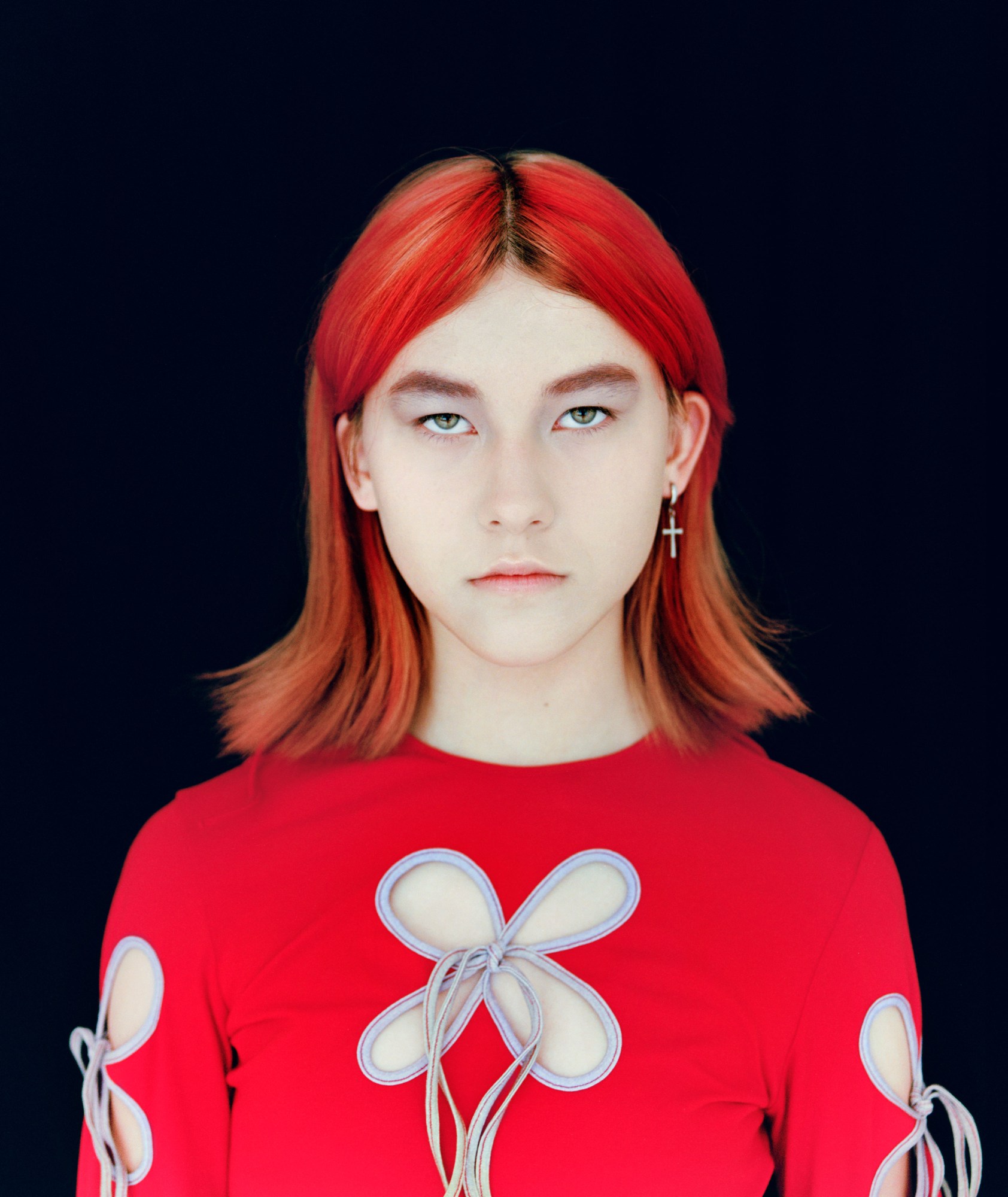
Uliana, 14, model
What do you do? Did your appearance inspire your interest in modeling?
I was born in Chirchiq [Uzbekistan]. At the moment I’m learning English and Korean, a little. I do modeling. They said that I have an unusual appearance… Since childhood, I’ve had a desire to be a model, and at some point people began nudging me towards it. I don’t know how I would rate my appearance. It’s probably nice; I have Korean features.
Do you feel more Uzbek or Korean?
I’m a citizen of Uzbekistan, but most of all I feel Korean; I relate to them and spend the most time with them. I live in a Korean neighborhood. My mother is Korean and her whole family are un-mixed Koreans. I relate also to Russians because of my dad, but I liked the culture from my mom’s side more, so I wanted to get involved with it.
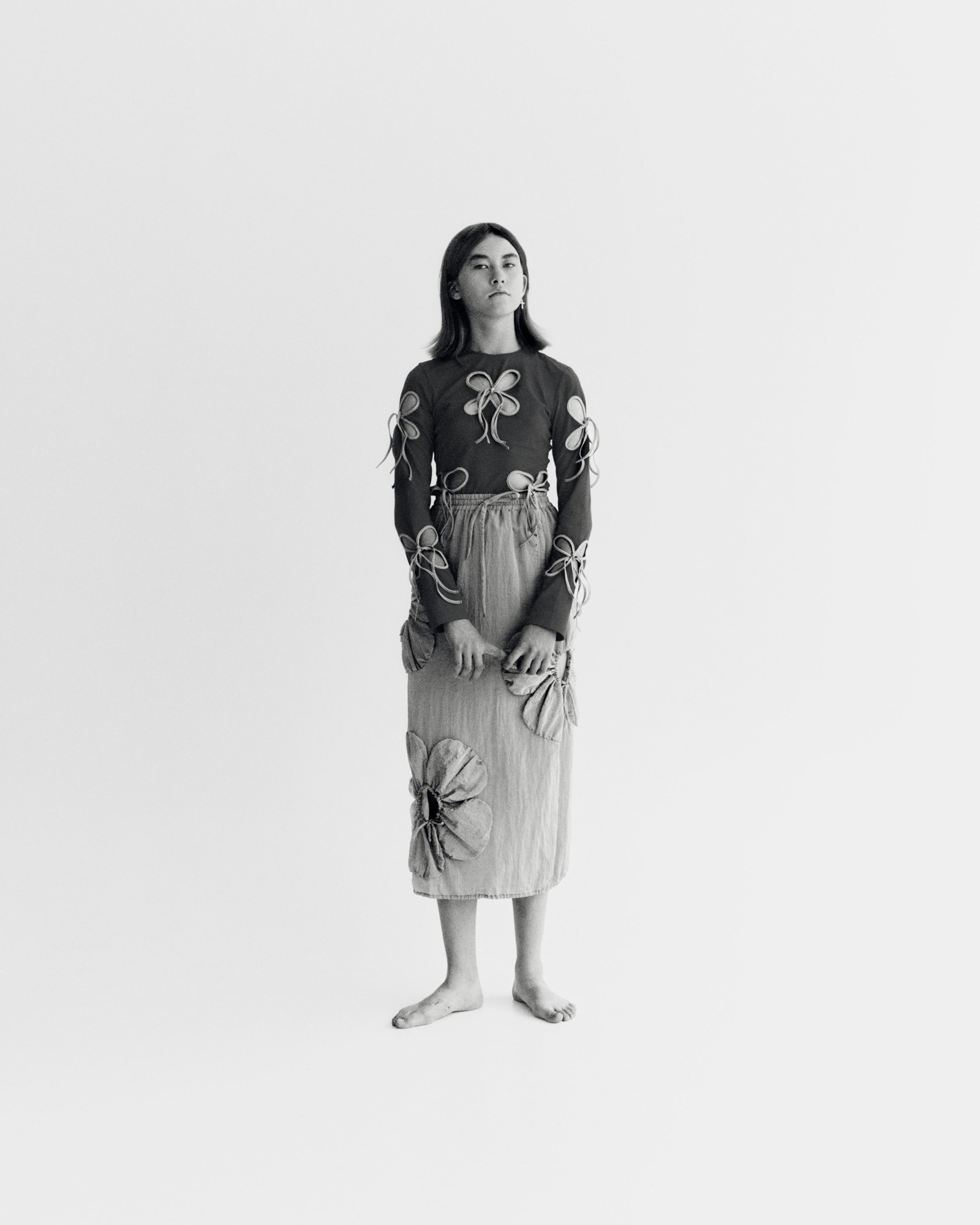
How much do you identify with South Korea or Korea, generally?
For me, being Korean is so cool: the language, delicious food, modern technology… Unfortunately, I have not been to Korea yet, but I would really like to visit. Maybe in the future I’ll be able to go there. When I hear songs in Korean or see traditional performances, I feel a little that I have something to do with it — it gives me more strength and confidence that I am Korean.
Where is your home?
For me, Uzbekistan is my home. I was born here, I was raised here and I grew up here. In the future I don’t really want to live here, but in other countries. There are many differences between the culture that I study and the traditions that our Korean family has, of course. For example, we do not have national Korean clothes and our food is also a little different from the real recipe.
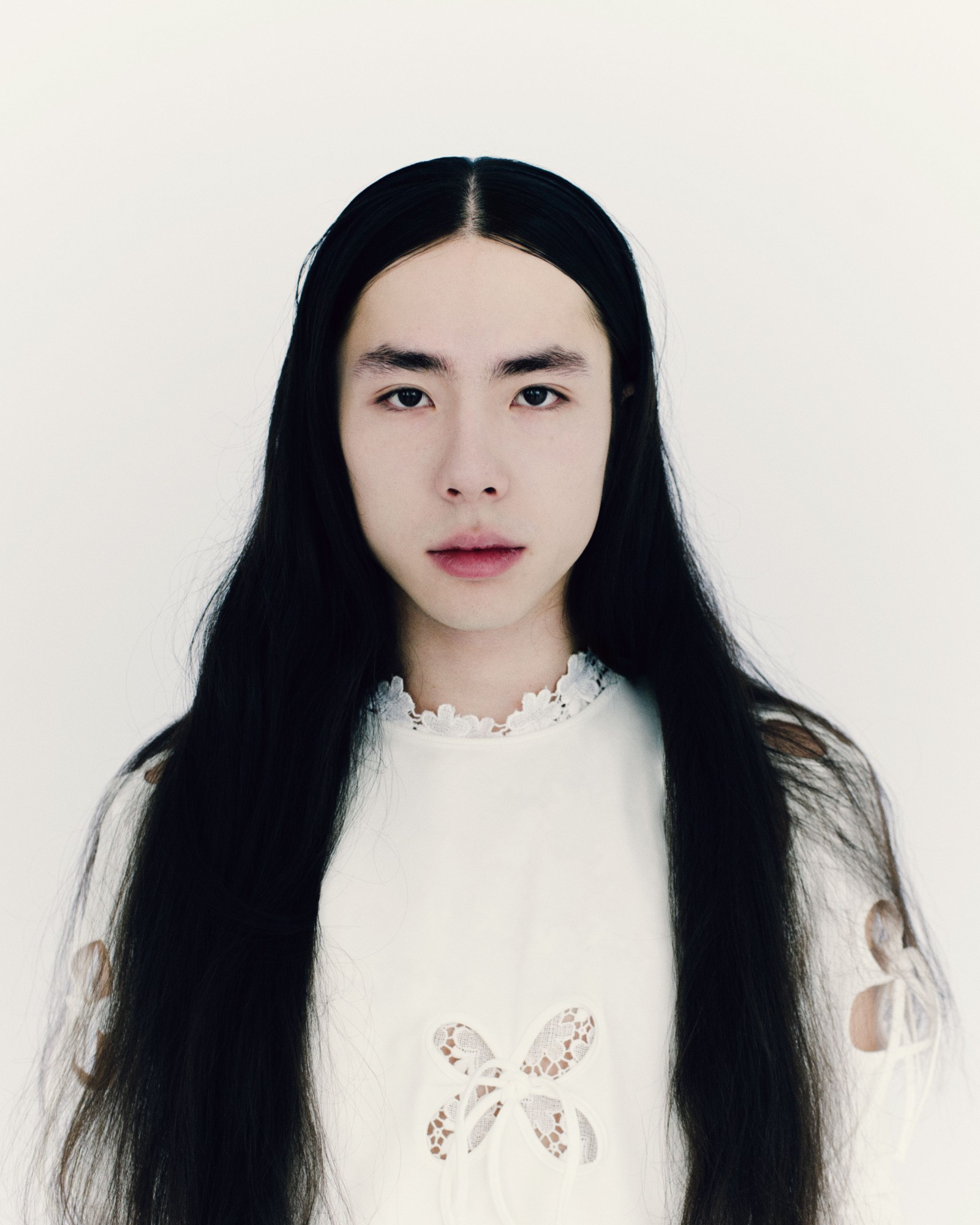
David, 21, musician
Where were your parents from and what did they do?
My parents’ story turned out to be a hodgepodge: my father is an Armenian from Baku, and my mother is 100% Korean from Kazakhstan, a Karaganda girl. At the age of 20, my mother moved to Moscow to study, that’s where I appeared. I was raised, grew up and came of age as a native Muscovite.
Do you identify with Korean culture?
To be honest, it’s still hard for me to say how I identify. I would not say that I feel like a Kazakhstani Korean at all or identify myself with them. I wouldn’t say that I feel particularly Armenian either, even though most of the mensal traditions from my childhood and in my family were predominantly [what, in the Soviet Union they called anything hailing from Caucasus] Oriental. As a child, again, in the context of all the Caucasian feasts, I was, apologies, the “little slant-eye boy,” so I always laughed with everyone too.
Have you ever been to Korea, and, if so, what did it feel like?
When I was 15 to 16 years old, I was bracing for my first trip to Seoul. Initially there were thoughts that maybe we would now come to our historical homeland and some string would vibrate inside me. However, after I saw the societal structure there, the people, it didn’t make me feel like, “Oh, so that’s where we’re from, that’s what we’re part of.” I realized the separation, that it was a completely different world which I grew up outside of. In the end, I treated it just like a trip abroad — there was no feeling of some kind of homeland.
What place could be your own then?
Then [I felt like] Russia was native for me. That Moscow was my home. I have traveled a lot, and still, I feel most comfortable there. I would probably even say that I feel like a Rossiyanin [citizen of Russian Federation]. At the same time, this does not mean that I identify as one.
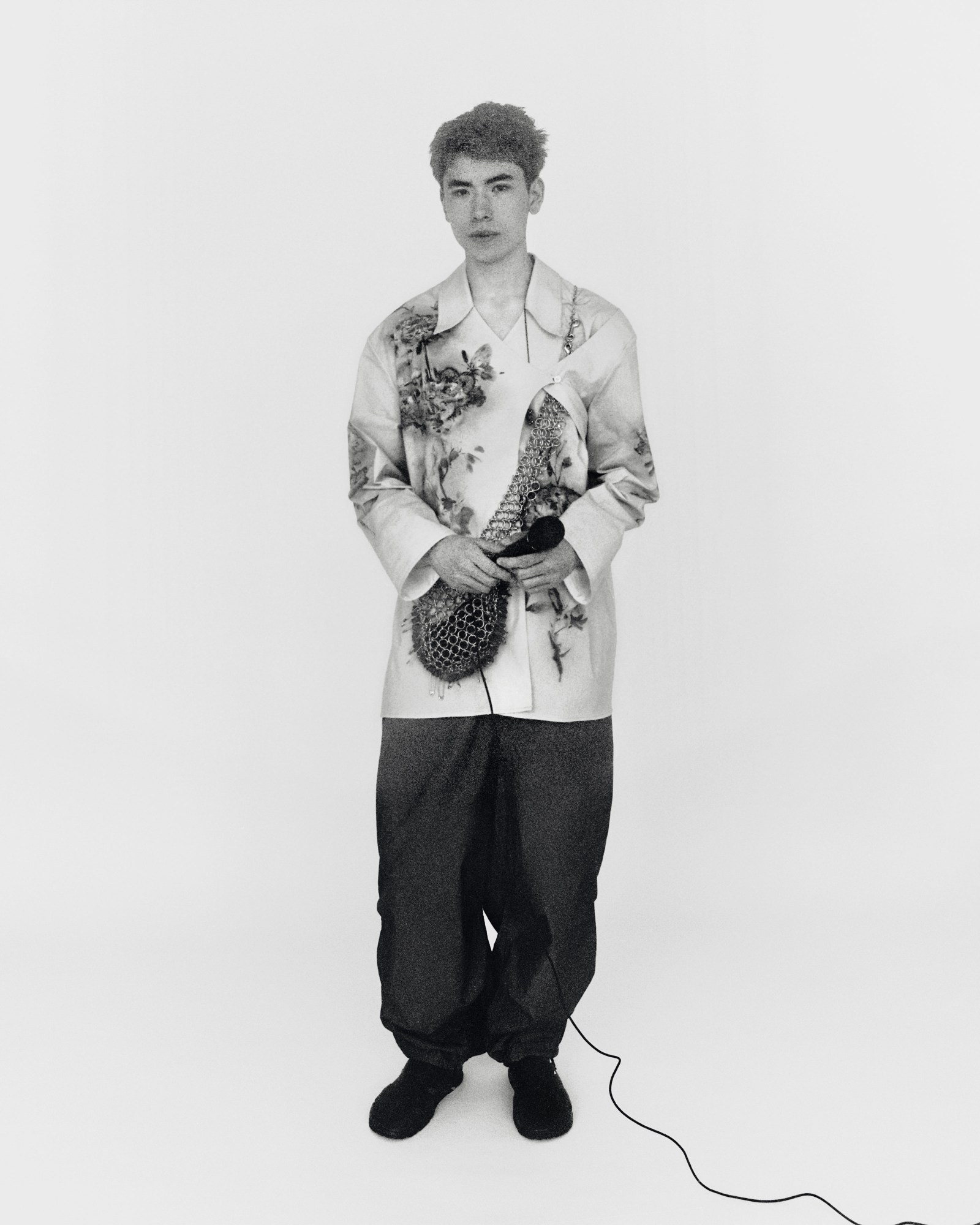
Mario, 25, director of photography
Where is your family from?
I am mixed-race: my mother is Russian, and my father is Korean. In the 1920s, when the repressions by the Japanese imperialists began, my great-grandfather literally carried my paternal grandmother over to [Soviet] Russia in his arms. They ended up there and started from scratch and everything went pretty well for them. When the Soviet repression began, and Koreans were sent to Uzbekistan and Kazakhstan, everything had to be started again. In Uzbekistan, as far as I know from my grandmother’s stories, the climate wasn’t very good, so my relatives decided to move closer to the Rostov region [of Russia]. There were vast expanses of land, on which you could build your future, growing, for example, rice.
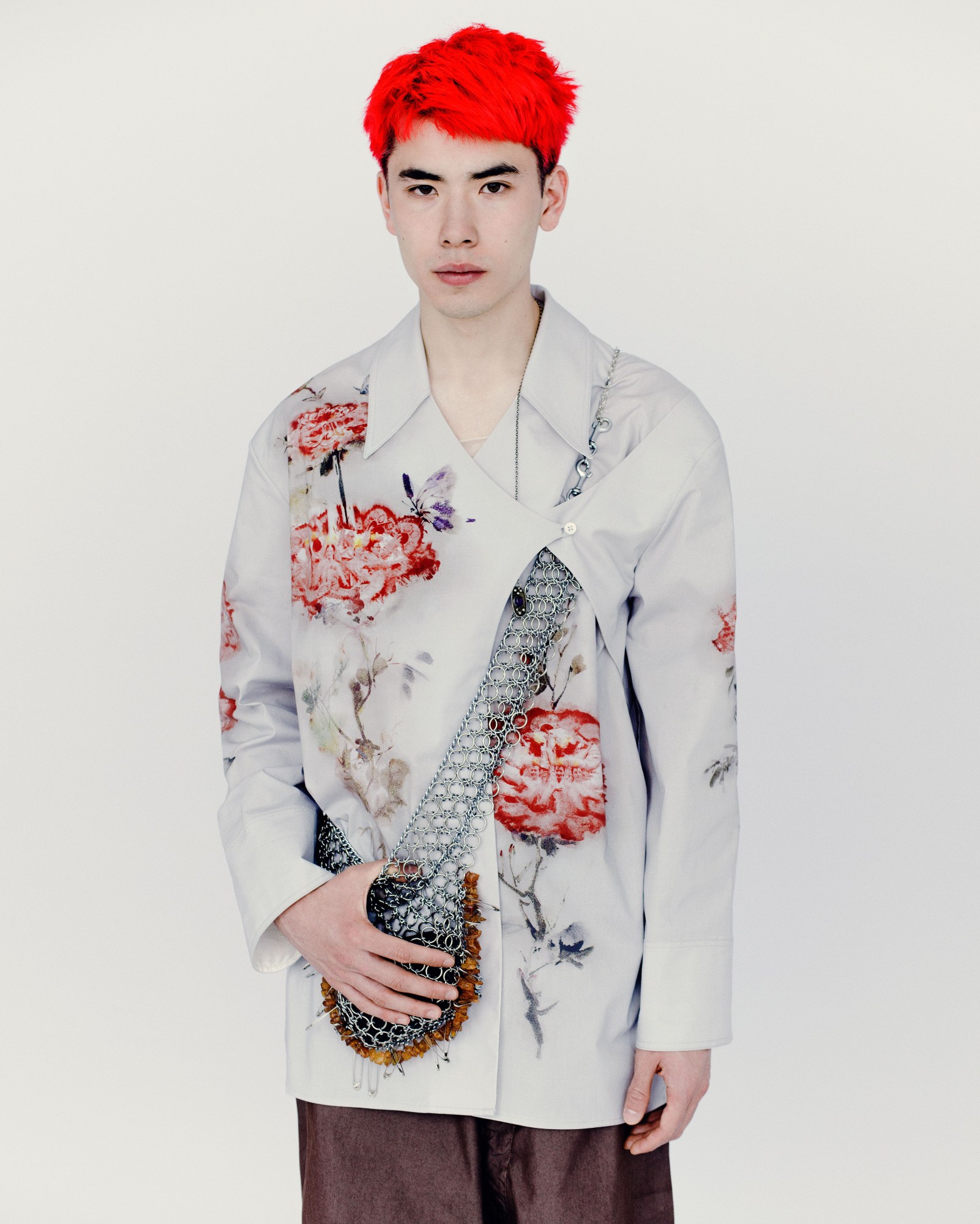
Has anyone in your family ever been back to Korea?
My sister went to Korea. She’d wanted to go there very much, and it’s just that it’s probably some part of us that is interesting, with which there is a very delicate relationship — you’re not there, but it’s a part of you. I’ve heard that there are some of my relatives who migrated back to Korea, who moved there on a dedicated work visa for Koryo-saram. What a circle — they come back to their homeland, so to speak, in the end.
Do you self-identify as Korean?
You don’t have to put yourself in some box or put some label on yourself: “I’m Korean.” I can’t call myself Korean. Many aspects of Korean mentality remain a mystery to me, and at the same time I’m not 100% Russian. I don’t feel like a Korean nor like a Russian; I think I feel like I’m somewhere in between. This is something that has been going on since my childhood. Probably, assimilated Koreans of my age will understand what I’m talking about.
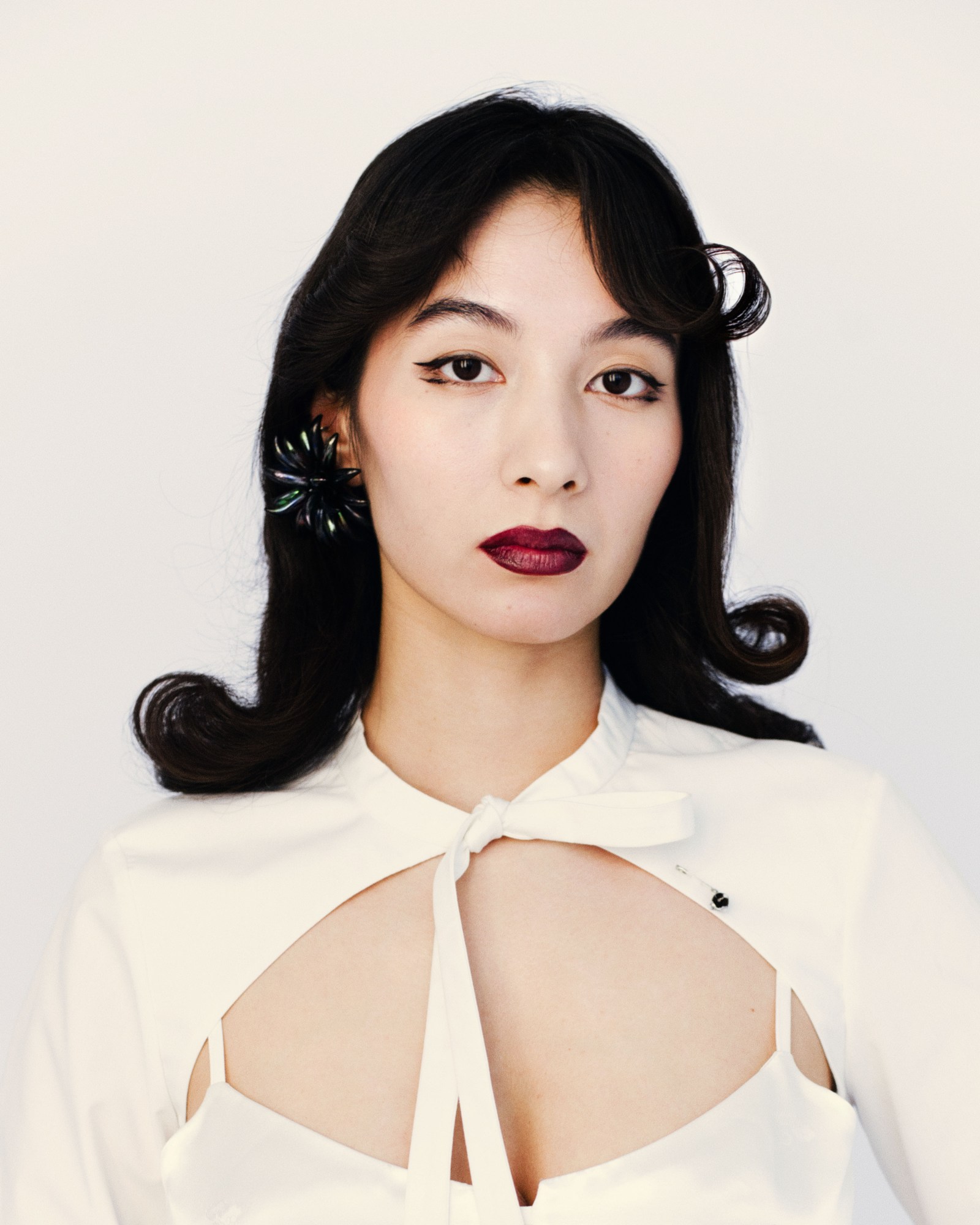
Anna, 27, product editor
Where are you from?
I was born in Dushanbe, Tajikistan, and I moved out when I was 2. From that moment, it seems to me, my identity started branching. We moved to the Volgograd region [of Russia] and since 2009 I’ve been living and studying in Moscow. I’m a citizen of Russia.
How did your ethnicity affect your life in Russia?
None of my family had any difficulties with the fact that they are Koreans. It was a slightly different story with me because I carried two cultures [Korean and Tajik] in myself, all while living in Russia, where, during my time at school, there was not a completely accepting society, and some childish name-calling would take place. I didn’t understand why I was like this, why I looked like this, why I had black hair. When I went to kindergarten, they gave me bread and I asked where the rice was. Everyone loves this story very much because it’s funny, but I honestly didn’t understand why no one gave me the food I’d used to eat.
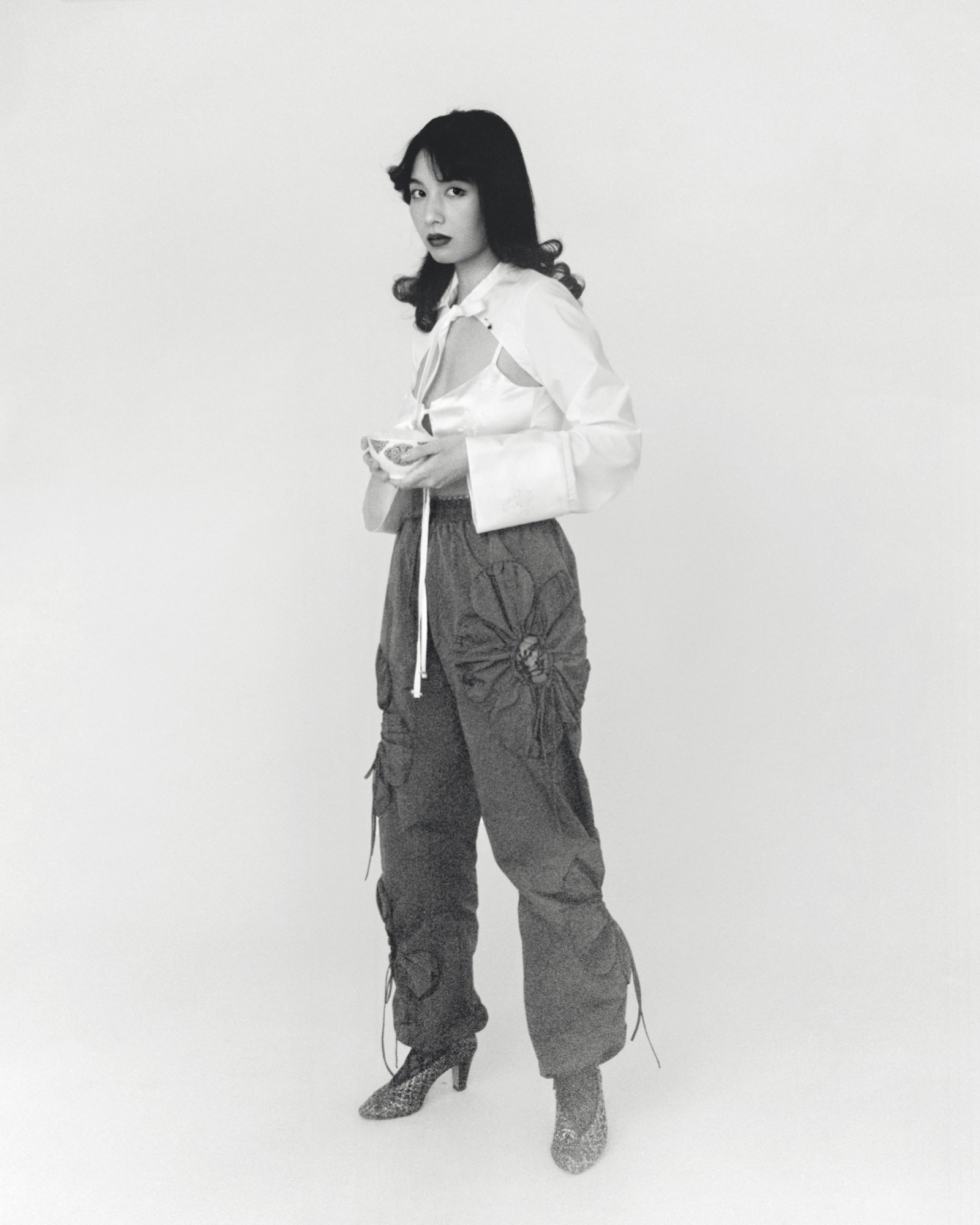
How do you self-identify?
I definitely consider myself a Rossiyanka [person of Russian Federation] because it depends not only on citizenship. I generally feel that I belong very much to the Rossiyskaya culture, but when it comes to ethnicity or the proverbial nationality, it’s a difficult question for me. I say I’m half Korean, half Tajik. There is no singular answer to this question, while I do ponder it quite a lot. I don’t see this as a problem, and in general, such questions about identity do not arise in my inner circle, only from some new people, and at those moments I realize that I am really different.

Violetta, 25, artisan, entrepreneur
Where is your family from?
I live in Tashkent, Uzbekistan, and I was born here. Both my mom and dad are Korean. They were also born in Uzbekistan, though outside of the city, and it was my grandmother that emigrated here when she was little.
Is your history something you discuss in the family?
This is something not talked about, usually. Somewhere around the ages of 11 and 12, I became interested in how we ended up in Uzbekistan and only then did my parents tell me. The main provider of this information used to be my grandmother, but she, unfortunately, died when I was 11 years old. I didn’t understand that I needed to ask about the move and about our legacy in general, so I don’t have a complete picture.
Do you identify as Korean?
I think that, for Koreans, we are no longer part of their community. There is a feeling that they will no longer accept us there as their own. We already have absolutely different worldviews. Even our [Soviet] Koreans won’t understand things in North or South Korea. Because we have already adopted some other things, we now, roughly speaking, do not fit into their picture. We are like that — one foot in. We will be strangers there, but we will never be svoi [same, not foreign] here. We are this small autonomous part.
What does it mean for you to be Korean?
I consider myself, first of all, an Uzbekistani Korean, since I was born here, but I never pondered what it means for me to be Korean and how I feel. I guess it’s just about being who I am. Up to a certain age, due to the fact that there was a lot of childish racism, I generally doubted that being Korean was normal. Now I can proudly say that I am Korean, that I exist, that I learn about myself, that I can understand what it is like for me here and in any other part of the world.
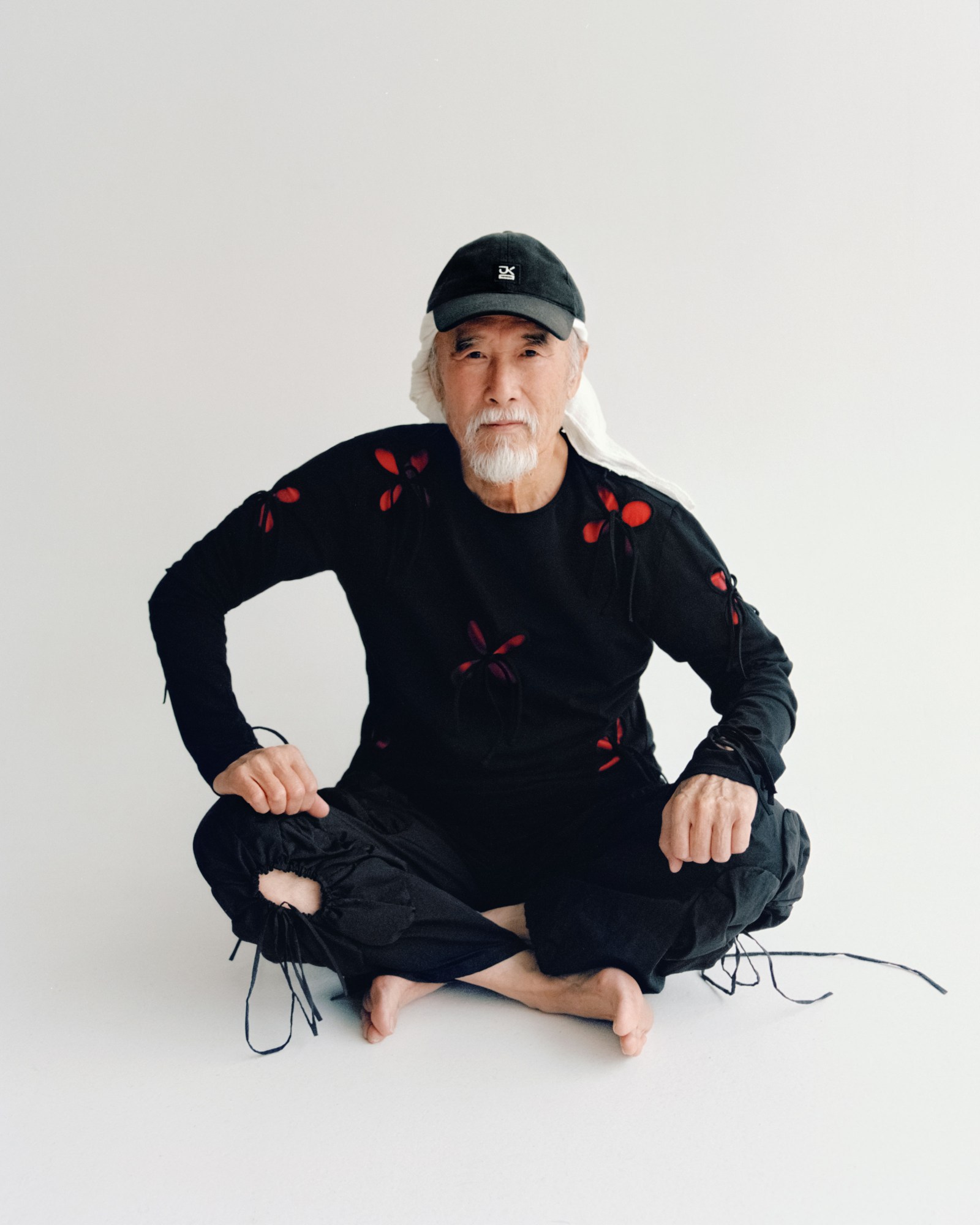
Viktor, 75, photographer
Do you think it is important to be in touch with your Korean-ness?
I grew up among Koreans and somehow I felt this [particular Korean] essence. I didn’t realize the value then, only my parents did. Since they were already from that generation with mixed blood, for them it is valuable. They, of course, are wary that it will all disappear. But we did not particularly feel it, and only later, with maturity, do you feel that it must be preserved. If I hadn’t been involved in photography, I might still not have understood. Embracing Korean-ness is necessary for my children, my grandchildren, although they may not touch upon it yet, but sooner or later the question arises where they come from.
When did you learn or realize that your parents had been repressed?
With regards to repressions, or “resettlement,” we were growing up just like the entire Soviet Union, not knowing our own history thoroughly because it was not covered anywhere. Parents kept silent about this more often than not. You somehow overheard something, and it settled in your memories. In 1988, [under] glasnost, the media began to open archives, and then we learned about the repressions, that we were taken, packed and resettled. My generation had known, but we had no idea of the scale.
Do you think Koryo-saram became more in touch with their identity and with each other after that?
Only in the early 90s, when [ethnic] cultural centers were formed in our country, did some [Korean] cultural things begin to revive — the harvest festival, the New Year, etc. Then people began to show interest in our origins.
Have you ever been to South Korea?
I’ve been to Korea many times. In South Korea, I feel like an observer. It’s still a different world.
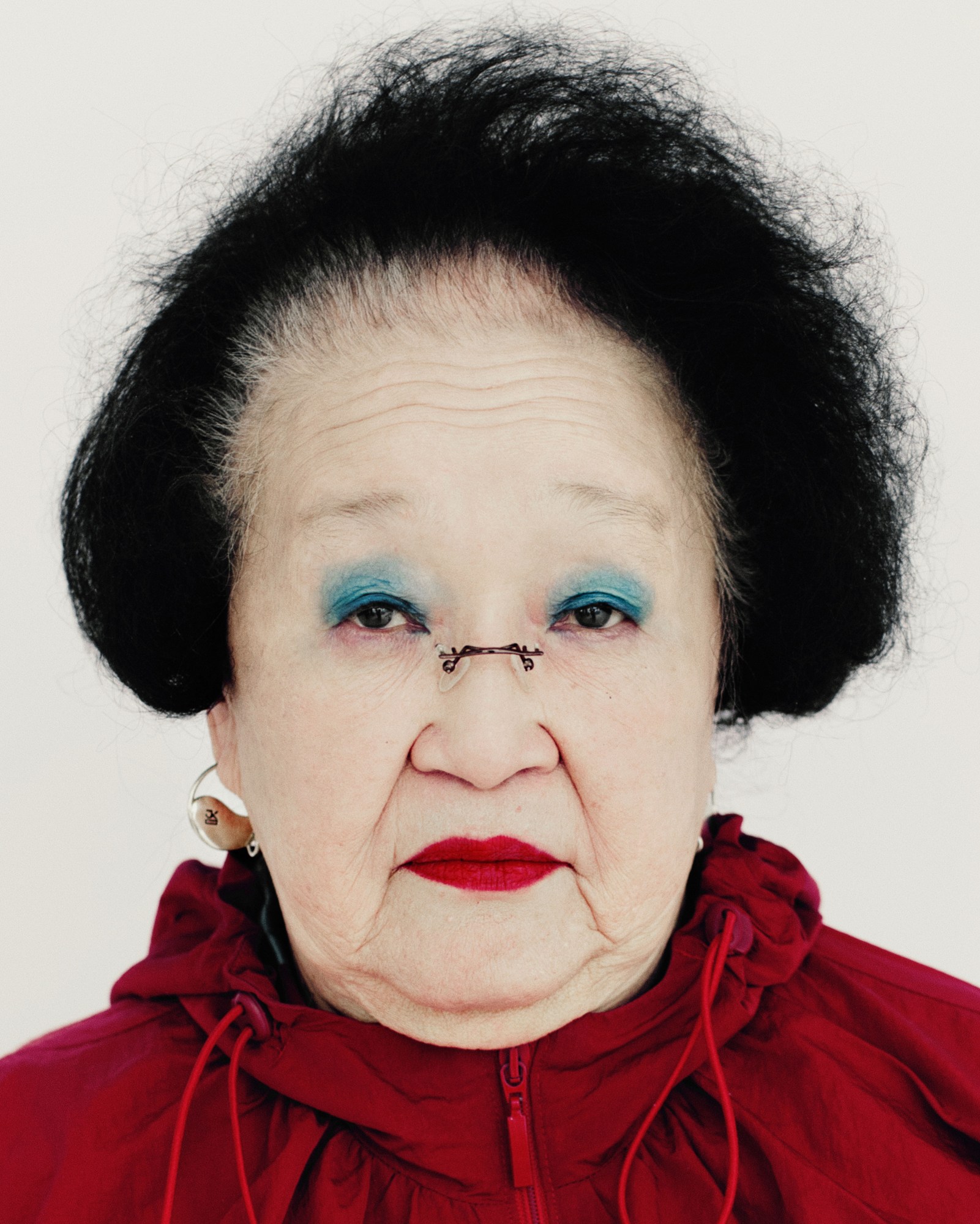
Nelli, 82, educator, school principal
Where are you from and what do you do?
I was born in 1940 in the city of Fergana in [Soviet] Uzbekistan, after my parents were forcibly relocated from the Russian Far East. I started a Korean school [in Moscow], so that our children who don’t know their native language could get at least a touch of it.
What had been the state of Korean in the Soviet Union? Did you speak it well at the time?
There used to be people who spoke Korean, who were born before 1937, but then it was banned. My brother studied in Moscow, he was born in 1935 and could speak some Korean, and there he was talking about something in confidence with a friend in a trolleybus — and just for this speaking a foreign language in Moscow, they locked him up in the police station. Things were being hidden away, burnt down, destroyed.
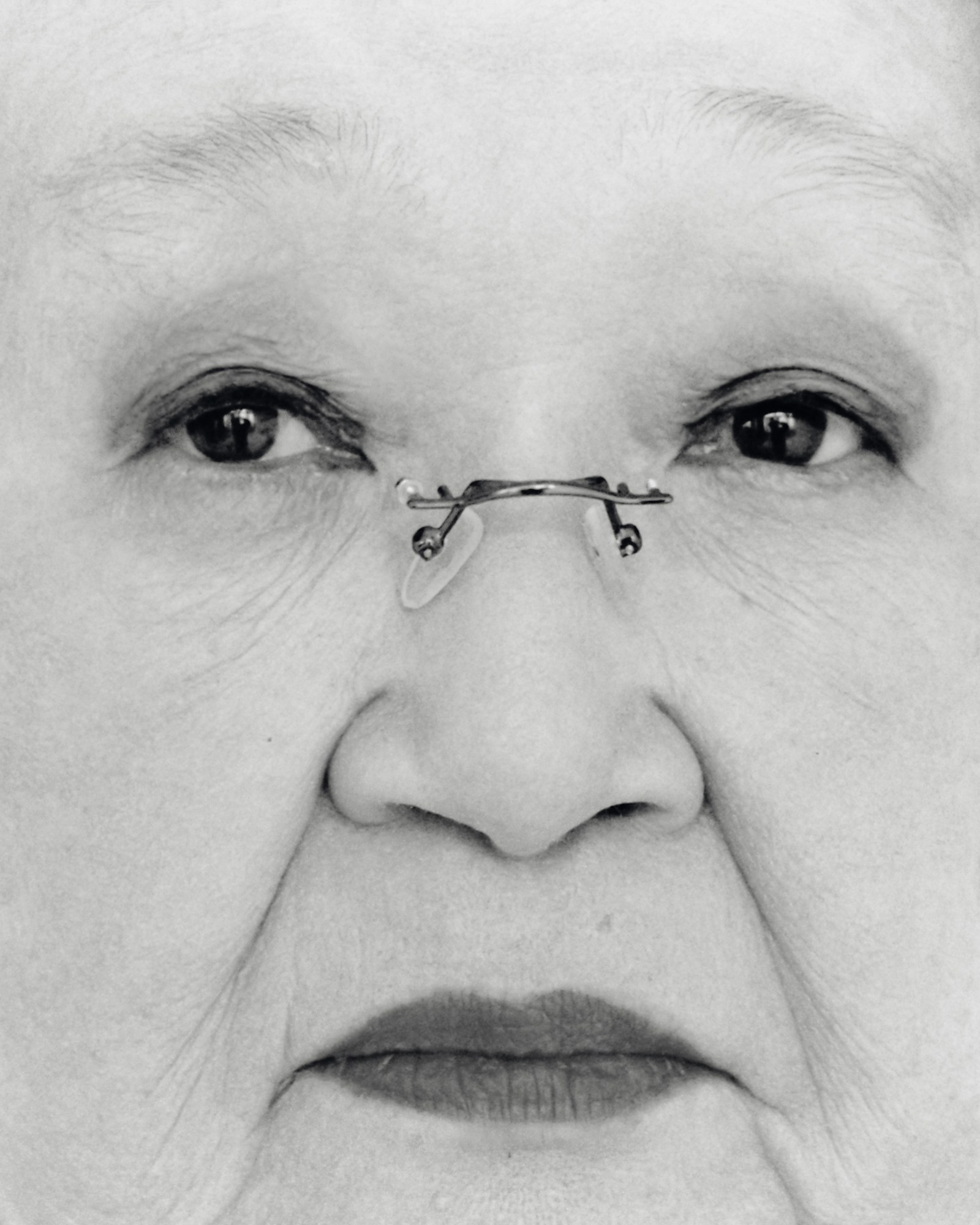
When the school opened, I didn’t speak Korean at all, but I set a goal for myself to start from scratch. So, at 52 years old, I started learning the language.
Is the Koryo-saram destiny something you ponder a lot?
I used to ask myself why are we such a nation, one not having a homeland? We speak Russian, but they humiliated us, called us “slant-eyed”, “black”, “a dirty nation”. My mom would answer me: “Daughter, please understand that this is still a good time that you are living in. Your dad and I have still never been able to go to sleep peacefully with our legs stretched out, and you walk around quite fine.”
Follow i-D on Instagram and TikTok for more culture.
Credits
Photography Sasha Munaev.
Styling Jenia Kim and Sofia Burnasheva.
Creative Director Jenia Kim
Hair and make-up Fariza Rodriguez and Masha Vorslav
Producer Tosya Bakashina
Photography and light assistant Alexander Kimyaev
Production assistant Alina Yaskova and Alexander Loginov
Stylist assistant Daria Tanzharikova and Polina Boroday
Interviews and translation Sofia Yukina and Vlad Ilkevich



